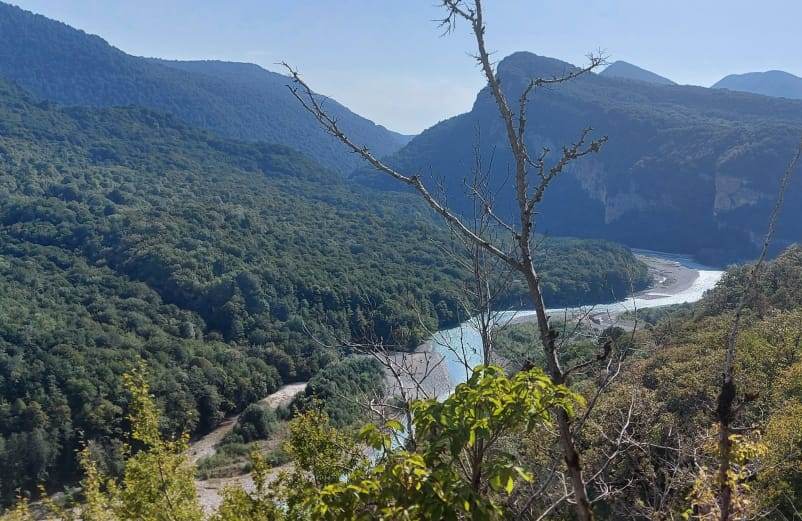Kazanites research water bodies in Abkhazia

This, among other things, was discussed during celebration of the 10th anniversary of KFU’s Department of Environmental Engineering.
Between 2004 and 2022, the Department has conducted 17 expeditions together with the Institute of Ecology of the Abkhazian Academy of Sciences, Sukhumi State University, and the Ministry of Ecology of Abkhazia. The research including river estuaries, shores of the Black Sea, cave water bodies, and waterfalls. Chair of the Department of Environmental Engineering Nafisa Mingazova has been named Honorary Professor of the Abkhazian Academy of Sciences for her contributions to the process.
She comments, “Research in Abkhazia began in the early 2000s. During that period, a representative office of Abkhazia was created at Kazan University and a similar representative office of Kazan University in Abkhazia. Ex-Minister of Ecology, Chairman of the State Committee of the Republic of Abkhazia on Ecology and Nature Management Roman Dbar was interested in organizing comprehensive environmental studies in the water bodies of the republic. When we started working, we were shocked by the variety of types, the purity of water bodies. In the early years, we tried to study different types of water ecosystems: mountain and lowland rivers, salt and fresh lakes, cave water bodies, waterfalls. At present, based on cartographic materials and field studies, an inventory of all water bodies of Abkhazia has been carried out: more than 5,000 small rivers and streams have been identified in the systems of 70 rivers flowing into the Black Sea, as well as 350 lakes and ponds. Work is underway to assess the state of water bodies, to consult and study lakes that are in the conditions of a hydrotechnical optimization experiment. For example, Lake Skurcha is a special water body. Previously, it was a run-out contaminated quarry after the extraction of sand and gravel. In 2011, we advised our Abkhazian colleagues to improve its condition by desalination through the construction of a canal from the Kodor River. Now the lake has increased biological diversity, is flowing, has received great recreational value and fame. This is a very successful project, as a result of which 40 joint scientific articles were published in the journals Web of Science and Scopus, draft monographs were prepared.”
Many rivers of Abkhazia remained unstudied for a long time; in 1974, the State Cadaster of Waters of the Soviet Union only included 26 most prominent rivers running into the Black Sea. After that, there were no full-scale monitoring projects.
On 4 November, when the Abkhazian Academy of Sciences is going to celebrate its 25th anniversary, KFU and the Academy plan to sign a new cooperation agreement.

